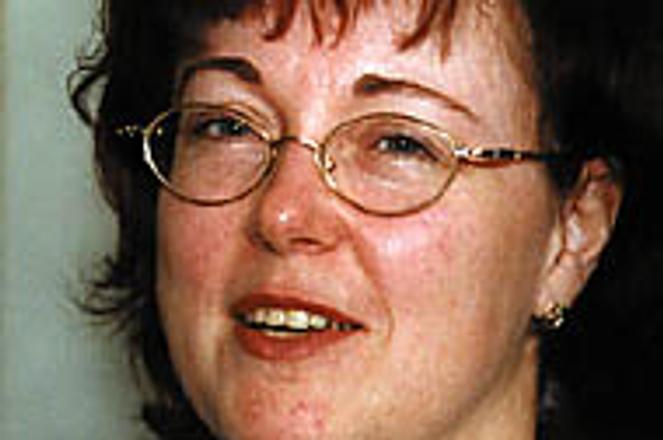Ľudmila Hadarová, head of Tatra banka's human resources department, says her bank has a problem finding motivated young people.photo: Ján Svrček
Tatra banka, Slovakia's most profitable bank, has opened nine new branches in Slovakia this year and is looking for employees in 30 different departments. In a sector that pays the highest wages on the Slovak labour market, Tatra banka recently launched a high-profile advertising campaign for new staff. The Slovak Spectator spoke to Tatra banka HR director Ľudmila Hadarová.
The Slovak Spectator (TSS): Your bank is the most profitable on the Slovak market, and of all banks, it should have little problem attracting job candidates. Why did you think you needed the campaign?
Ľudmila Hadarová (ĽH): While previous campaigns had been successful, we needed new, quality people to work at our bank. Such a campaign is maybe not that usual for many firms in the country, but we see it as a combination of meeting a recruitment aim and making use of a marketing tool. It's a sort of an image event.
TSS: Banking in general is an attractive sphere of employment because of the considerable difference between the national average wage of 11,000 Slovak crowns and the average wage in the banking sector of 23,000 Slovak crowns. One would expect that you would get a lot of applications. What candidates do you prefer, what qualities are you looking for and do you have any particular target group?
ĽH: Of course, essentially we would like to attract young, dynamic people, but we are aware of the principle of equal opportunities. Above all we are looking for people who are willing to study and develop their abilities further. Communication, and a will to work hard and improve are among the other qualities we are looking for. We prefer people with language skills but it's not a decisive criteria for all positions.
TSS: There is a lot of discrimination against older people on the job market. Do you have any internal rules, or principles that you respect in your bank regarding this issue?
ĽH: We don't have any concrete policy on this issue, but I think basic ethical principles, which include not discriminating against older people, run through our company. Yes, the bank is a relatively young one - the average age in the bank is 28 - but this is because our bank primarily targets university graduates. This group has also experienced discrimination over the years, maybe similar to that which older people have.
TSS: Is it difficult to find the kind of employees you are looking for on the Slovak job market?
ĽH: Our recent experience shows that it's really difficult. Two or three years ago, for example, in Bratislava, the situation was very good. Right now, however, we have a problem finding quality people who would be really interested in this work.
TSS: Why is this, and what qualities are the applicants you meet missing?
ĽH: For example, we see lower motivation among candidates to work at positions which require good language skills, which is maybe a paradox. Often a candidate loses points [in an interview] because of [poor] language skills.
TSS: Do you think this situation arose because your requirements have increased considerably over the years, or because for some reason the workforce has become apathetic?
ĽH: The requirements are quite high, however, I don't think we have considerably raised the standard we required two or three years ago.
TSS: Could a possible reason be the much talked about brain drain from Slovakia to western European countries?
ĽH: It's possible, although I don't have any evidence to prove the point. I think this [lack of qualified, motivated people] is a general problem for all firms on the [Slovak] labour market today. We had higher expectations from our advertising campaign in terms of the reactions we received. When we analysed the campaign we found out that maybe it was in the timing.
We supposed that at this time of year, graduates would already be thinking about their future careers, and therefore would be interested in looking for a good job and would react to the campaign.
On the contrary, the [small] number of reactions we received maybe proves that young people are taking time out to enjoy the summer, to travel and so on.
TSS: Despite that, you said you received a lot of applications, and it would be physically impossible to invite all applicants to interviews. How do you decide in the first place who you invite and who you don't?
ĽH: That's a good question. It would be impossible to talk to all people. For example, we receive about 1,000 applications a month. Just reading all the CVs and information is time-consuming enough. That's why the application form is very important - it's our first contact with a person who wants a job with our bank.
Based on the form, whether the application has all necessary parts, like a CV with basic personal data, references, motivation letter, certificates about further education or courses, and so on, we make our first decisions.


